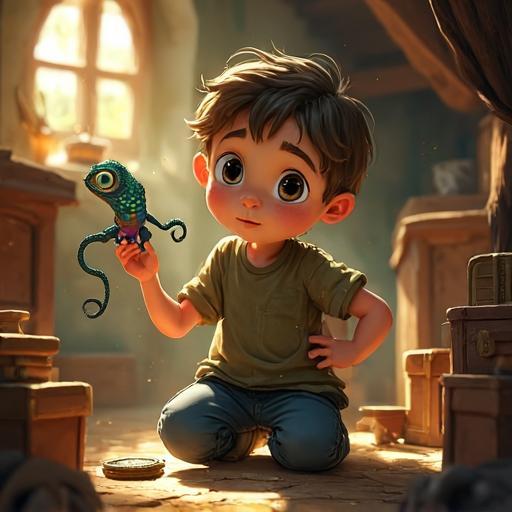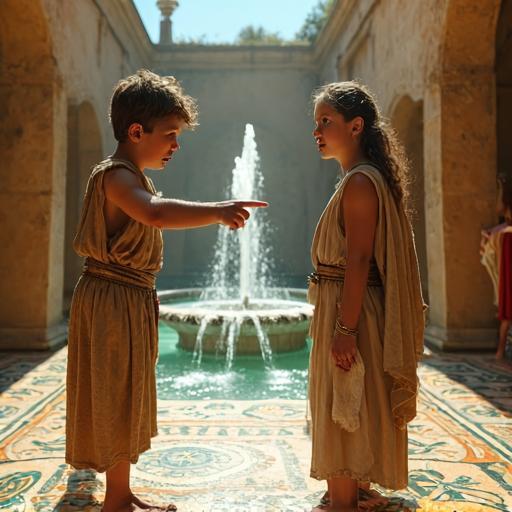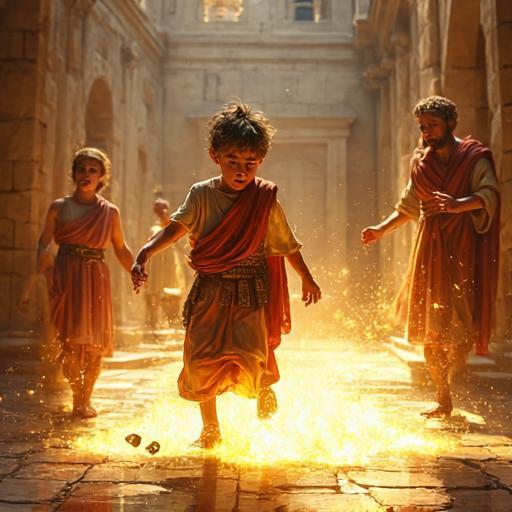Chronos and the Echo of Rome
A boy and his time-shifting pet witness an ancient injustice and must decide whether to change history.
The Coin in the Dust

The attic smelled of dust and forgotten time, a kingdom of shadows where 10-year-old Leo loved to explore. On his shoulder perched Chronos, his extraordinary pet. Chronos wasn't a lizard or a chameleon, though he resembled both; he was a creature of time, his iridescent skin shimmering with the ghost of yesterday and the whisper of tomorrow. While sifting through a wooden chest, Leo’s fingers brushed against a cold, grimy disc. It was an ancient Roman coin. As he wiped the dirt away, Chronos, ever curious, scurried down his arm and placed a single, shimmering claw upon its surface. The effect was immediate. The dusty attic dissolved into a swirl of blinding gold light, pulling them into the coin's deep, historical echo.
The Whisper of Injustice

They solidified, unseen, within a sun-drenched Roman villa. The air was warm, smelling of olive trees and baked bread. Before them, a Roman boy named Lucius stood trembling over the glittering shards of a magnificent mosaic vase. Panic contorted his face, quickly replaced by a cruel cunning. He turned towards a young slave girl, Lyra, who was quietly polishing a statue nearby. "You! You clumsy fool! You will be whipped for this!" he prepared to shout. Lyra’s eyes widened with pure terror; she was innocent. Leo felt a hot surge of anger. "We can't just watch this," he whispered to Chronos. The creature on his shoulder pulsed with a soft light, communicating a complex idea: they could not change the river of time, but perhaps they could toss in a single, small stone.
A Flash of Truth

Leo knew what they had to do. It was a choice, a responsibility. Focusing his thoughts on fairness and truth, he held the coin tightly. Chronos acted as a lens, amplifying Leo’s intent. Just as Lucius opened his mouth to seal Lyra's fate, the coin in Leo's hand—a phantom object in this time—flashed with a brilliant, impossible glint in the Roman sun. Startled, Lucius flinched, and in that moment, a large, incriminating shard of the vase, which he had hidden in the fold of his tunic, slipped out and clattered onto the mosaic floor. His guilt was undeniable. The vision shattered, and they were back in the quiet attic. Leo looked down at his hand. The Roman coin was no longer grimy and dull; it shone with a warm, clean lustre. He understood then that history wasn't just a story. It was built on choices, and a single act of integrity could echo forever.